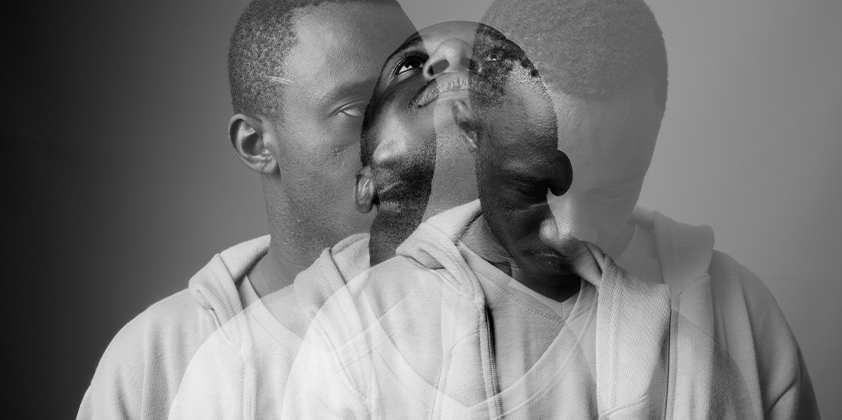
“The mania started with insomnia and not eating and being driven, driven to find an apartment, driven to see everybody, driven to do New York, driven to never shut up.” – Patty Duke
Do you have a serious mental health condition? Managing your daily life with mental health isn’t simple. It’s important to know that if you’re living with a serious mental health condition, you’re not alone. According to the National Alliance on Mental Illness (NAMI), 1 in 20 Americans is living with a serious mental health condition.
Oceans Healthcare is dedicated to providing meaningful education on mental health conditions, including bipolar disorder. Today, we’ll be discussing bipolar side effects and how they affect your mental and physical health.
Understanding What Bipolar Disorder Is
Bipolar disorder is a chronic mood disorder that causes you to experience extreme emotional highs and lows. The exact causes of bipolar disorder aren’t well understood. Family history, genetics, environmental factors, and stress are all believed to play a part in the development of bipolar disorder.
If you have bipolar I, you’ll experience intense emotional highs known as mania, which are often—but not always—followed by depression. If you’re living with bipolar II, the depressive episodes tend to be more intense, and you experience periods of hypomania, which are less intense than full manic episodes.
Another common form of bipolar disorder is cyclothymic disorder. With this condition, manic and depressive symptoms both tend to be milder, but they are also more frequent.
Although bipolar disorder is a lifelong condition, it is manageable. With the right medication and support, you’ll learn to keep your symptoms in check.

Understanding How Bipolar Side Effects Impact Your Day-to-Day
If you’re living with bipolar disorder, you know that fluctuating between depression and mania or hypomania is exhausting. Going from one extreme to the other leaves you feeling like you can’t trust your brain.
Bipolar disorder can affect your relationships and your ability to attend to your responsibilities. Depending on what type of episode you’re having, the type of impact your condition has on your life differs. Let’s take a deeper look at the specific side effects of mania and depression.
How Mania and Hypomania Impact Your Life
Mania is associated with extremely high energy levels. Full manic episodes are associated with bipolar I and last for at least 7 days. Hypomania, which is more moderate, is associated with bipolar II and cyclothymic disorder. It doesn’t usually last as long as a full manic episode, around 4 days. Both mania and hypomania can have a serious impact on your daily life.
Common side effects and symptoms of mania include:
- An inflated sense of self
- Extreme feelings of happiness or excitement
- Easily distracted by unimportant things
- Feeling much more talkative than normal and speaking quickly
- Impulsive or rash behaviors
- Racing thoughts
- Feeling highly irritable or aggressive
- Constant movements, like pacing or fidgeting
- Making unrealistic or unusually big plans
Impulsive decision-making during a manic episode can create major, sudden changes in your life. You may impulsively decide to spend money or quit your job, which can have long-term consequences.
It can be really difficult to identify mania while you’re experiencing it, but mania is usually more obvious to those around you. If the people in your life have expressed concerns that you may be manic, you should consider talking to a medical professional.
Sometimes, manic episodes escalate to psychosis. During a psychotic episode, you’ll experience some combination of hallucinations and delusions. Hallucinations occur when you see, hear, smell, feel, or taste something that isn’t there. Delusions are strongly held beliefs that aren’t based in reality. A psychotic episode is very serious and requires immediate medical attention.
How Depressive Episodes Impact Your Life
Depressive episodes can occur whether you have bipolar I or II, but they are usually more prominent in bipolar II. Depressive episodes last at least two weeks but can last for months if they’re not properly treated.
Common side effects and symptoms of bipolar’s depressive episodes include:
- Ongoing feelings of sadness or emptiness
- A constant sense of guilt, worthlessness, and hopelessness
- Fatigue or low energy levels
- Loss of interest in hobbies or activities you used to enjoy
- Trouble making decisions
- Difficulty concentrating for long periods of time
- Withdrawal from social activities
- Lack of motivation to complete tasks of daily living
- Thoughts of death or suicide
The low energy of depression can be especially frustrating. It’s common to have a hard time completing tasks for work or school due to a limited ability to concentrate. Even seemingly simple tasks like bathing or brushing your teeth can feel monumental during a depressive episode. This frustration can create a vicious cycle, leading to worsening depression.
During a depressive episode, you will feel disconnected from yourself. Your lack of interest in your own hobbies and friends can leave you feeling like you don’t recognize yourself. It’s important to remember that this won’t last forever.
Suicidal ideation needs to be taken very seriously. If you are thinking about hurting yourself or someone else, please seek medical help immediately.
How Bipolar Impacts Your Physical Health
Although bipolar disorder is classified as a mood disorder, it doesn’t just impact your mood. It can have far-reaching effects, which impact many aspects of your daily life. Let’s review 5 ways bipolar disorder affects physical health:
- Stomach and Digestion: During manic episodes, many people experience stomach problems. This can include general feelings of discomfort and pain while your brain and body are working overtime. You may experience abdominal pain, diarrhea, and nausea. Some people report that their gastrointestinal pain worsens at the beginning or end of episodes.
- Weight Fluctuation: Both mania and depression are known to cause significant changes in appetite. Many people don’t feel the need to eat when they’re hungry. On the other hand, some people overindulge as a way to seek pleasure from food. During a depressive episode, some people find it difficult to eat, while others eat to cope. Depending on how different phases of the condition affect you, this can lead to major changes in weight.
- Sleep Disturbances: Mania and depression both have a major impact on your sleep pattern. During manic episodes, it’s common to feel like you barely need any sleep. Oversleeping is common when you’re depressed. Both under and oversleeping can compound physical health issues and reduce your immune system’s efficiency, making it easier to get sick.
- Changes in Libido: The swings of bipolar disorder can have a severe impact on your sex drive. During mania, your sex drive will likely go up. This can lead to unsafe sexual practices, like unprotected sex. During depressive episodes, libido usually goes down.
- Muscle Pain: This type of pain is particularly common during depressive episodes. Muscle pain is thought to be related to reduced serotonin levels during depression. It may also be related to reduced movement during depressive episodes.
Mental health and physical wellness go hand in hand. If your body doesn’t feel good, it’s difficult to stay focused on improving your mental health. It’s important that your physical needs are taken into consideration when you begin treatment for bipolar disorder.

Getting Help for Bipolar Disorder in Dixieland
Bipolar disorder is a serious mental health condition, and the side effects can be debilitating. The good news is that you are capable of managing your symptoms; you just need the right support. With the right bipolar disorder treatment program, you’ll be able to move forward and reclaim your life.
The best options for bipolar treatment usually involve a combination of medication and talk therapy. The right medicine will limit the severity and frequency of your episodes. In cognitive behavioral therapy (CBT), you’ll work with a therapist to identify how your thoughts, feelings, and actions are related. Then, the two of you will develop ways to identify bipolar side effects and come up with coping mechanisms.
You can take control of your condition and its side effects.
The team at Oceans Healthcare will empower you with the coping skills you need to manage bipolar disorder symptoms and side effects. With more than 30 locations throughout the south and over 34 thousand clients treated annually, we have the expertise you’re looking for. Plus, every program is overseen by a board-certified psychiatrist. Call us today at 888-293-6899 to learn more.
Oceans: Your Path, Our Purpose
